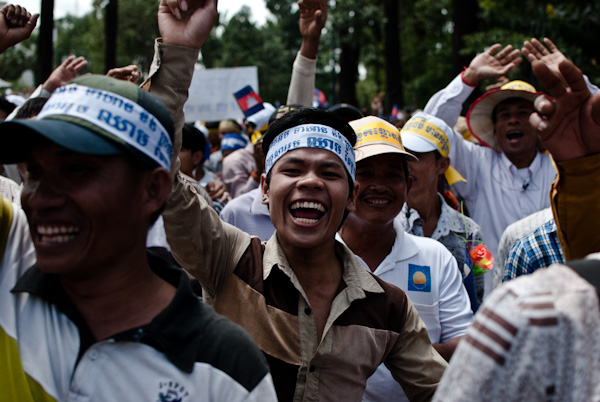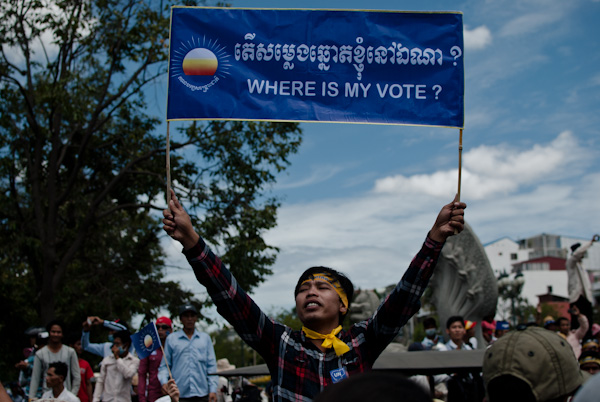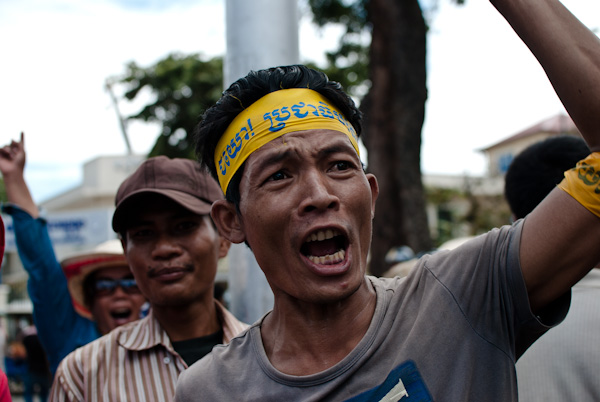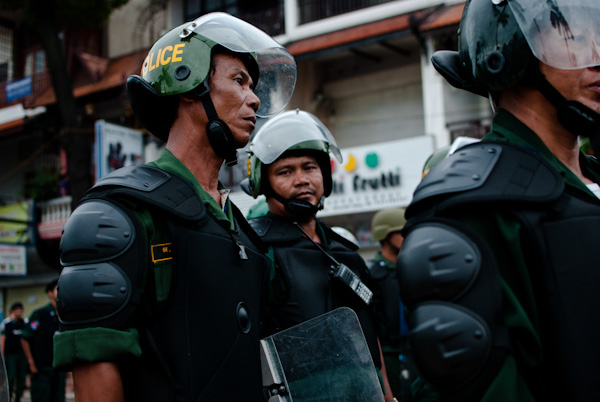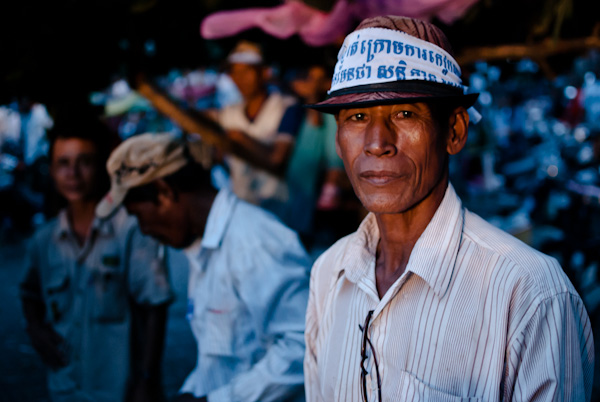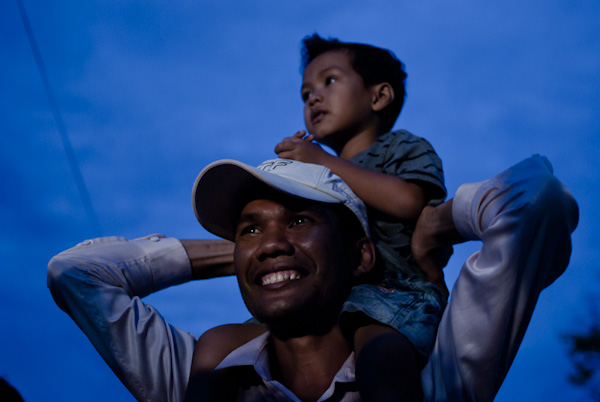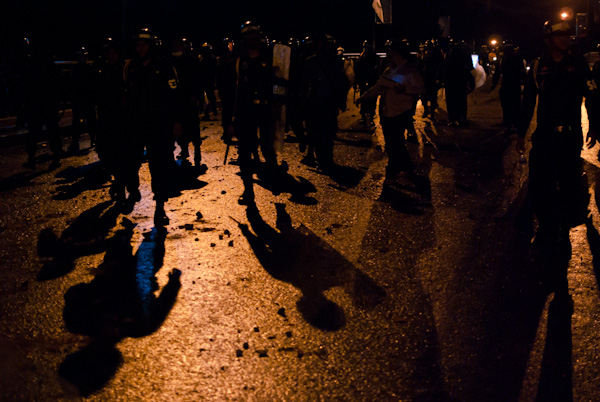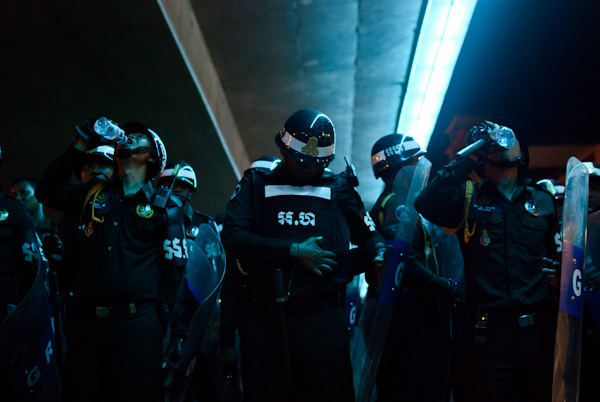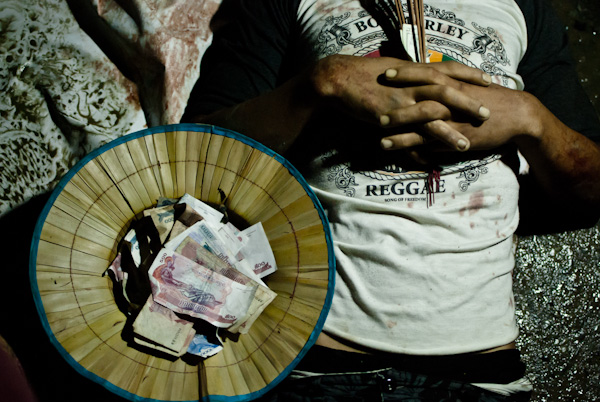PHNOM PENH – After a six-week political impasse, Cambodia’s National Election Committee (NEC) has officially declared incumbent Prime Minister Hun Sen the winner of disputed national elections held on July 28. There was little surprise in the September 8 announcement, despite the opposition Cambodian National Rescue Party’s (CNRP) heated claims that widespread electoral irregularities tilted the scales in favor of the long-serving Hun Sen’s Cambodian People’s Party (CPP).
Like many Cambodian government institutions, the NEC is widely assumed to take its marching orders from the CPP. As if on cue, it ratified earlier provisional results that gave the CPP 68 seats in the country’s 123-seat National Assembly; the CNRP was awarded 55. In so doing, the NEC rejected a raft of complaints from the CNRP and its president, Sam Rainsy, who claims it actually won a thin majority with 63 seats. A tense stalemate has reigned since the polls, with both parties claiming victory.
Opposition concerns about the elections are pressing and legitimate. One election evaluation released by a coalition of 21 Cambodian nongovernmental organizations (NGOs) last week concluded that due to large-scale irregularities the NEC’s endorsed result does not “fully reflect the will of the voters”.
It found that thousands of names on voter lists had been erased and altered, and that many voters arrived at polling stations only to find someone else had voted in their name. It also counted more than 300,000 duplicate names on voter lists. All this has added weight to CNRP claims that, due to a scripted campaign of voter fraud, more than a million Cambodians were effectively disenfranchised.
Still, little has happened since the election to change the political balance. For the past six weeks, the CNRP has repeatedly called for an independent election investigation, which the CPP has predictably rejected. In turn, the CNRP has rejected CPP invitations to enter political talks on the formation of the new government, demanding instead that Hun Sen step down.
Election results in Cambodia are typically the start of a political process rather than the end of one – a jumping-off point for the sorts of political gymnastics and chess games that have become a national specialty.
When Rainsy announced that his party would hold public demonstrations against the election result, the government responded by beefing up security around Phnom Penh and publicly drilling hundreds of riot police in a public show of strength. The CNRP have held several large rallies to protest the election results, including a 20,000-strong gathering on September 7, but none have dared to stray from Freedom Park, a sanctioned protest space in the capital.
The announcement of the official results has kicked this game of cat and mouse into a new, more critical phase. Immediately, the opposition announced it will hold a three-day protest “camp-in” starting on Sunday, with Rainsy threatening to defy an official prohibition against marches through the city’s streets. The CNRP also says it will boycott the first session of the new National Assembly on September 23, in a bid to hold up the formation of a new CPP-led government.
In response, the CPP has issued fresh warnings about unsanctioned public gatherings, warned NGOs against supporting the opposition’s protests, and claimed the right to reallocate the CNRP’s parliamentary seats if it sits out the formation of a new government.
On Friday morning, a small homemade explosive device was found near the National Assembly building in Phnom Penh and detonated by landmine experts, while three M79 grenade shells turned up close to the Freedom Park protest site, raising the political temperature ahead of Sunday’s demonstrations. Lao Mong Hay, a long-time analyst of Cambodian politics, characterized the CPP’s current message to the opposition as “take it or leave it” – join the government or forfeit your role altogether.
Royal intervention
Enter King Norodom Sihamoni. On Thursday, a day after returning from a medical trip to Beijing, the Cambodian monarch wrote to Rainsy and Hun Sen, inviting them to the Royal Palace on Saturday for talks to help “solve” the current stand-off. With the King now engaged, observers say that a negotiated settlement with the ruling party looms as the most probable path out of the deadlock. Prince Sisowath Thomico, a member of both the royal family and the CNRP, said the King could give both sides an honorable exit from the confrontation. “The King is the only way to face-saving for both parties,” he said.
This is especially crucial for the opposition. The difficulty the CNRP has had so far is that it has pledged itself publicly to both non-violence and non-compromise in a situation where confrontation and compromise are the only real ways forward. Despite notching significant gains at the ballot box, prevailing political forces still weigh mostly in the CPP’s favor. Domestically, it still controls the army, police, and most (if not all) government institutions.
At the same time, Western governments are stuck in a holding pattern, making pro forma calls for an election probe but also urging both parties to come to the negotiating table and avoid a violent confrontation. They are very unlikely to support the CNRP’s claims to victory in the election, preferring a stable status quo to an unpredictable spell of political upheaval. Slowly, the CNRP is coming to grips with an unfortunate and sobering reality: that in Cambodian politics, holding the legal and moral high-ground only goes so far.
In the end the will of the Cambodian people has been always been trimmed and tailored to fit the prerogatives of leading factions and personalities.
Kem Ley, a Phnom Penh-based independent political analyst, said that the opposition’s upcoming protest camp was unlikely to sway the ruling party, but would help maximize the CNRP’s bargaining power if and when it sits down to negotiate with the CPP. In exchange for joining a new government, he suggested, the CNRP could demand a stronger role in national decision-making or concrete reforms to institutions like the NEC. “For me, inside its heart, the CNRP is happy with this [election] result,” he said.
The King’s involvement might now give the CNRP the face-saving pretext it needs to come to the table. Rainsy dropped a hint earlier this week that his party might join the first meeting of the National Assembly if he receives a direct request from the King, who traditionally presides over the occasion.
It was the first public softening of the opposition line. Indeed, Kem Ley suggests that the King’s return at this juncture might be an indication that the two parties are already in talks – or that a deal has already been struck. “If the CNRP and CPP did not agree, the King would not have come back,” he said.
A “Cambodian” solution of this kind would be par for the course. Election results in Cambodia are typically the start of a political process rather than the end of one – a jumping-off point for the sorts of political gymnastics and chess games that have become a national specialty. Every election since the United Nations-organized poll of 1993 has been followed by negotiations between competing parties, and in the end the will of the Cambodian people has been always been trimmed and tailored to fit the prerogatives of leading factions and personalities.
Despite his tough talk of making no compromises with Hun Sen, Rainsy has shown himself amenable to such compromises in the past. After the 2008 national election, the Sam Rainsy Party – as the opposition party was then known – announced a similar boycott of the National Assembly but then attended the opening session at the 11th hour after talks with the ruling party.
That deal largely set the pattern for the following five years, most of which Rainsy whiled away in self-exile in Paris after the government brought what he claims were politically motivated charges against him for uprooting Vietnamese border markers and publishing “false” maps of the politically sensitive frontier.
After a much stronger showing in this year’s election, and the support of large swathes of the Cambodian public, the choices Rainsy and his CNRP colleagues make in the next few weeks will be all the more crucial.
Published by Asia Times Online, September 13, 2013


